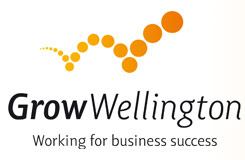Grow Wellington may have failed to trumpet its successes loudly enough, but it doesn’t deserve the criticism that is currently being heaped upon it as the seriously flawed Wellington regional economic strategy (WRS) has undergone review. The economic development agency has done a relatively good job of making a silk purse out of a sow’s ear within a recessionary environment in which the central government focus has been on other parts of the country.
It beggars belief that plans are afoot to abscond with $600K of the agency’s annual budget to fund the WRS office to “administer” the strategy. It’s not clear how creating another layer of bureaucracy will enhance the region’s economic performance however. Past complaints by the Wellington Chamber of Commerce demonstrate a deep ignorance of the outstanding network building and facilitation work that Grow Wellington has undertaken and the cheap attacks look like nothing more than a desperate attempt by the Chamber to remain relevant.
Last year’s Rugby World Cup was a pleasant distraction for some, but an economic fizzer for the region overall, as predicted by every study looking at the long term value of such large scale events. But sound academic research and global best practice has never been the basis for the regional economic strategy, a document that was prepared by local management consultants. At no time did the strategy charge Grow Wellington with researching and advocating on regional infrastructure and accordingly the organisation does not employ researchers or economists. One would have thought this was in fact the Chamber’s role, hence their criticism should be directed inwards.
Wellington needs better public transport, an infusion of entrepreneurial culture plus more and ongoing investment into productive and high value parts of the economy, including facilitating foreign capital. On the other side of the ledger, we also need to preserve the quality of life that we currently enjoy because this is the basis for skilled migrant attraction. Look around – at least half of the technology start-ups in the region have been created by recent arrivals. That is an economic success story that should be told far more often.
You can follow the author on Twitter @GeniusNet

 Despite some over cooked fund raisings causing a few ripples recently . A couple of high profile trade sales underline the value that a great brand brings to a business.
Despite some over cooked fund raisings causing a few ripples recently . A couple of high profile trade sales underline the value that a great brand brings to a business. The recent
The recent 


